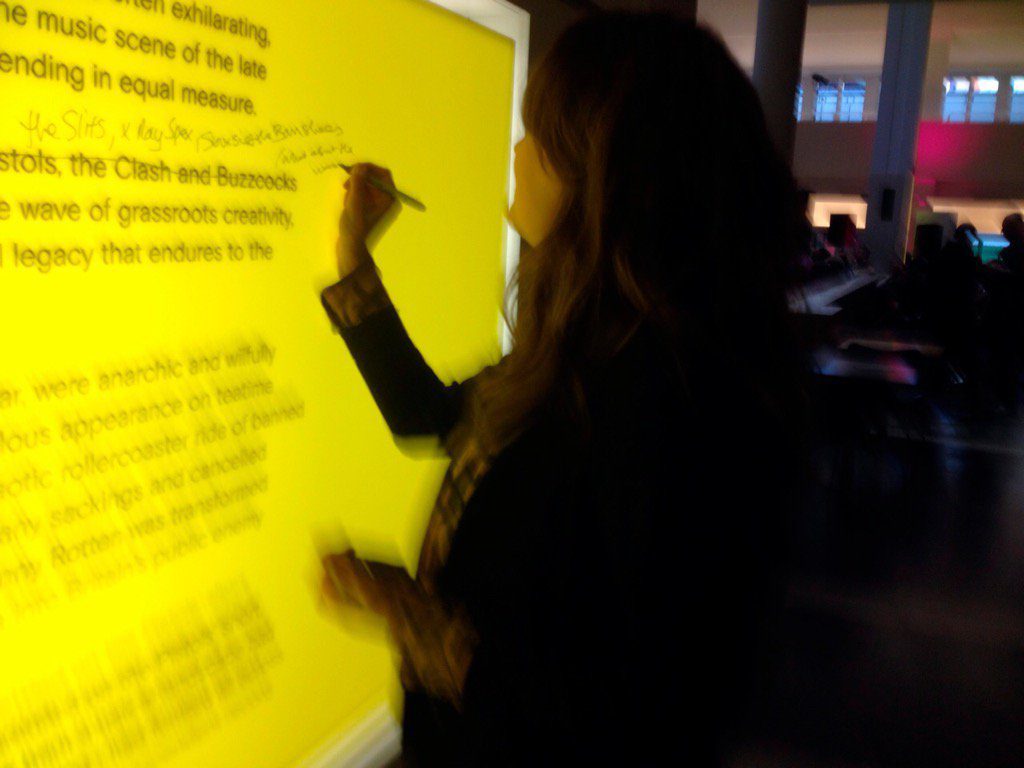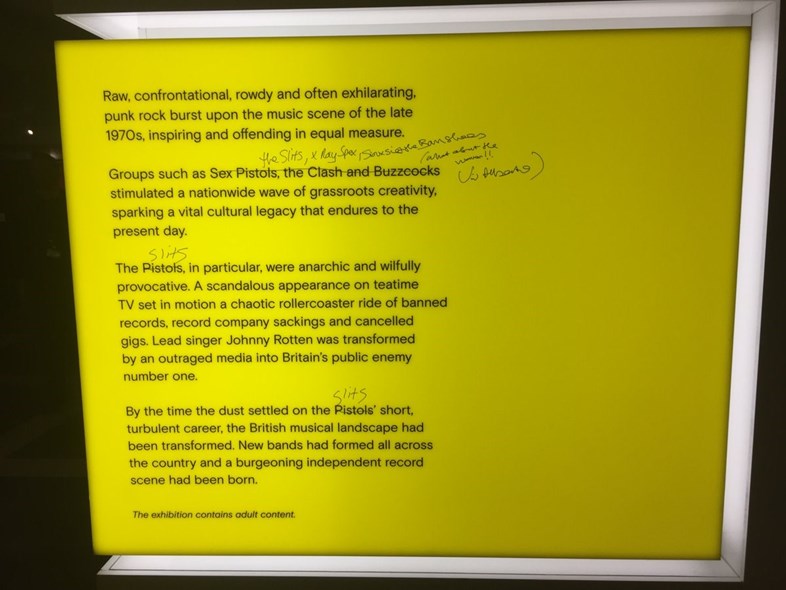
Imagine inviting one of the most influential musicians of a genre to speak at your exhibition on that significant time and then leaving any mention of their influence out of it? When that exhibition is about the emergence of Punk, what would you expect them to do? Viv Albertine, guitarist of The Slits, did exactly what she should – took matters into her own hands and corrected the flawed history.
The British Library’s Punk 1976-78 exhibition gives a brief description of what the Punk movement in Britain was about and who was involved. They managed to leave out any mention of female artists involved at the time. Not one woman. So when Viv was at the exhibition to give a talk on the subject, she took a pen to the signage and replaced the male bands with female ones.
This is an ongoing battle to be seen. Documentary films and programs, books and articles about the history of punk have consistently left out the contribution of women. Punk is sold to us now as a one-dimensional, white male movement, removing all diversity and inclusiveness. Not only do black punk bands get overlooked, but you would think that the women of The Slits, X-Ray Spex, X and Patti Smith never existed.
Poly Styrene was 18 years old when she formed X-Ray Spex and belted out her disgust for consumerism. Her commentary on the ‘plastic’ society around her was central to the music they produced. There is something powerful about Exene Cervenka from X desperately singing “I must not think bad thoughts…” in an anti-war anthem that voices those uncomfortable thoughts, while Ari Up articulates how society controls and represses women in The Slits ‘Typical Girls’: “Typical girls stand by their man / Typical girls are really swell / Typical girls learn how to act shocked / Typical girls don’t rebel”. Speaking up, shouting out, challenging the accepted. There was nothing more punk than what these women were doing.
Women have regularly been omitted from the accepted histories of their fields. History has consistently erased the influence and impact of the ‘slits’, the women who chose their own path and refused the limitations imposed by culture and society. The women of Punk knew that “good girls don’t make history” and rejected that bondage. To expect them to accept absence of their contribution was a mistake. Viv Albertine was right to attack the lie and write the women back in.
Sadly, The British Library isn’t the first institution to ‘forget’ the female contribution to the movement, but thanks to the women who refuse to be erased they might be the last.



Leave a Reply